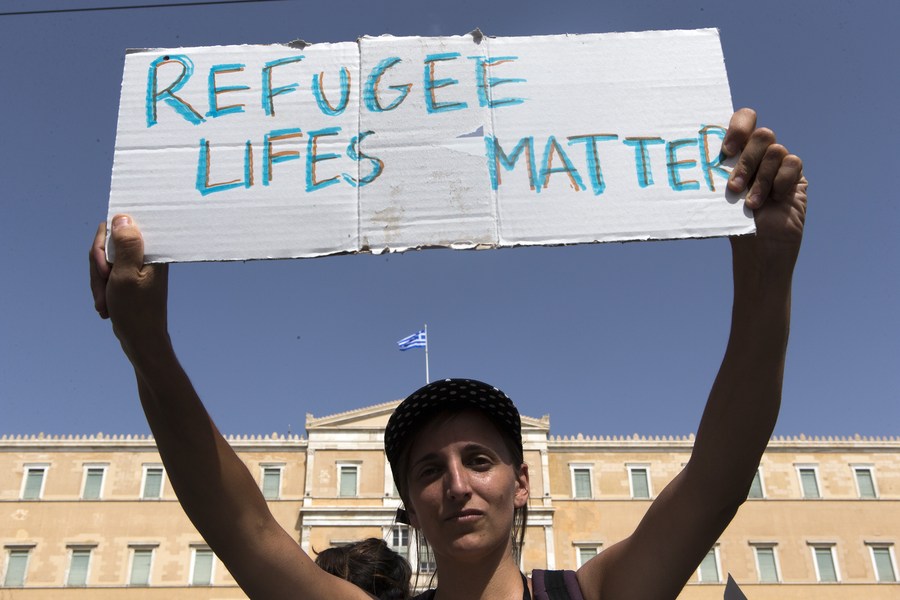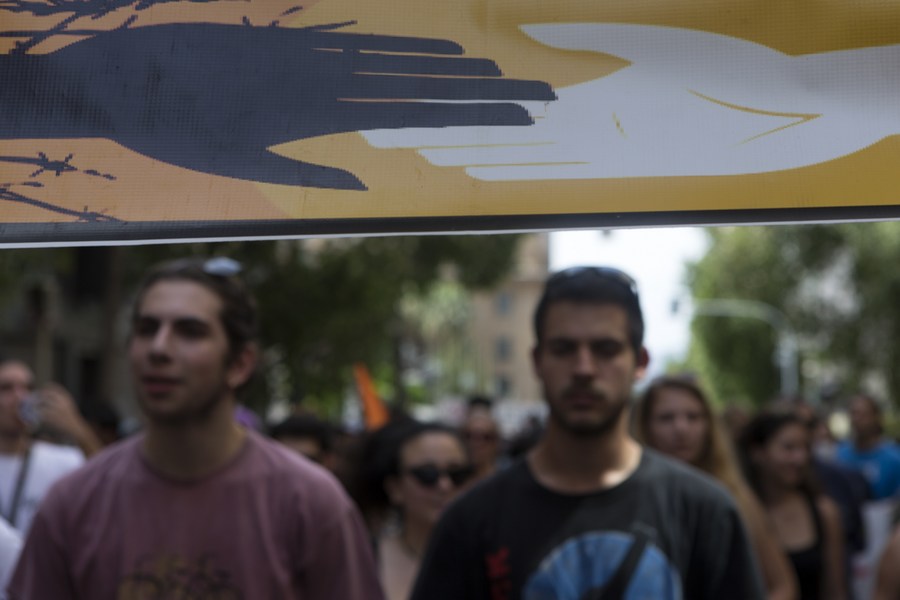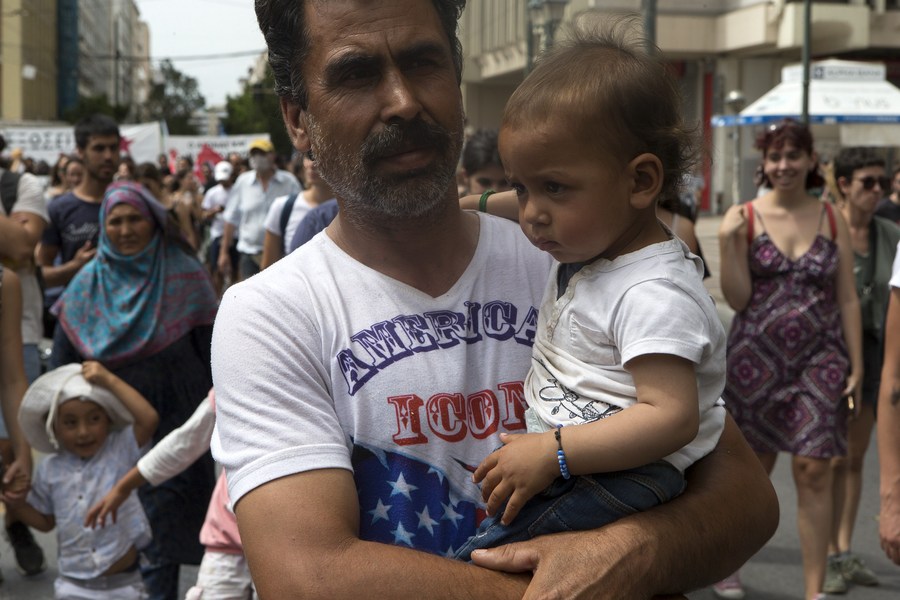
A refugee holds a sign during a demonstration in front of the Greek Parliament in Athens, Greece, on June 20, 2020. (Xinhua/Marios Lolos)
Five years after the start of the mass influx of refugees into Europe via Greece and other European countries, the Greek government and officials from the EU acknowledged that, despite efforts made and funds allocated, the situation for refugees is far from idyllic.
ATHENS, June 21 (Xinhua) -- Marching in front of the Greek parliament, thousands of protesters on Saturday raised banners with slogans such as "Refugee lives matter" and "To be a refugee is not a crime," requesting better care for refugees on the occasion of the World Refugee Day.
The protests sweeping the streets of central Athens and a dozen cities across Greece were co-organized by local non-governmental organizations, which denounced the dire conditions at overflowing refugee reception centers in Greece, and the policy for refugees in Europe as a whole.
Five years after the start of the mass influx of refugees into Europe via Greece and other European countries, the Greek government and officials from the European Union (EU) acknowledged that, despite efforts made and funds allocated, the situation for refugees is far from idyllic.

A refugee holding his child takes part in a demonstration in Athens, Greece, on June 20, 2020. (Xinhua/Marios Lolos)
"We can't breathe in Moria," read a graffiti in Athens, referring to the Moria refugee camp on Lesvos island.
Some 16,000 people are now hosted in Moria, which has a capacity of about 3,000, according to figures released by the Greek government on Thursday.
Approximately 34,000 refugees and migrants, who crossed the Aegean Sea from Turkish shores by boats provided by smuggling networks for hundreds and thousands of euros per person, are stranded for several months on five Greek islands.
More than 1 million people have reached Greece since 2015, and most continued their journey to other European countries until the borders along the Balkan route were sealed off in 2016.
An agreement between EU and Turkey launched in spring 2016 aimed at stemming the influx produced positive results for several months, but gradually became ineffective. The relocation programs to other EU member states and deportations have also yielded poor results.

Protesters are seen during a demonstration in Athens, Greece, on June 20, 2020. (Xinhua/Marios Lolos)
Currently, more than 90,000 asylum seekers are stranded in Greece, repeatedly asking for stronger European solidarity to share a disproportionate burden.
"The protection and care of children, the persecuted, those whose life and freedom is threatened, is an obligation of every society that places human beings center-stage," Greek President Katerina Sakellaropoulou said Saturday.
Meanwhile, demonstrators said there is still much more Greece and other countries should do to fulfill their obligations to refugees.
However, critics said the support from the government is not enough to help refugees stand on their feet, secure new homes and income, and their benefits are also cut off.
"We are here today first of all to stop evictions which are inhumane and hypocritical, the evictions of 11,000 people from camps and apartments, vulnerable people," Thanasis Kourkoulas, a member of Deport Racism Organization, told Xinhua.

A refugee holding his child takes part in a demonstration in Athens, Greece, on June 20, 2020. (Xinhua/Marios Lolos)
"Last month they (officials) told us we have to leave our houses," Mahmonir Shirzad, an 18-year old refugee from Afghanistan told Xinhua, adding that people are not willing to rent their houses out to refugees for fear of not getting paid. "It is too difficult."
"It is my dream that I live here with my family," said Akif from Kashmir, who crossed into Greece about 18 months ago and is currently sharing a two-room flat with 10 people.
"It is very difficult for us. My (asylum) application is pending now. My interview will be in September," he said. ■



